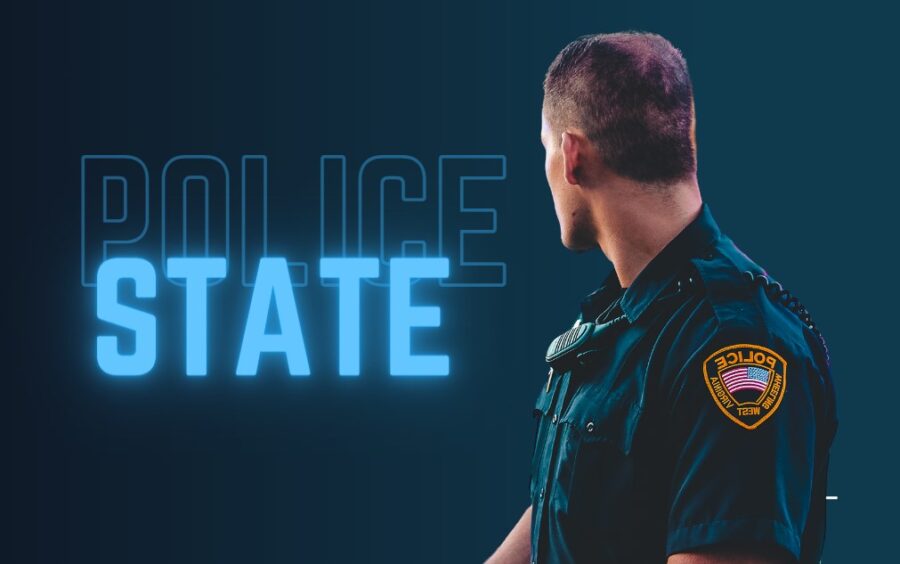Are you worried about the increasing power of your government? You should be, as an unchecked authority can easily lead to the establishment of a police state.
This article explores the main characteristics of a police state and explains why it is important to be vigilant. Get ready to understand how a ‘police state’ works and how it takes away individual freedom.
The concept of a Police State is a situation in which the government exerts control over its citizens through a combination of powerful policing and restrictive legislation. The term has come to represent a state in which individual rights are routinely violated and heavy taxes are used to fund militarised law enforcement.
Such harsh measures may be employed either to simplify the process of maintaining internal order or sometimes to brutally oppress people who pose a perceived threat to the government.
A police state generally seeks to suppress dissent, as it ensures complete power for those currently in charge. Throughout history, police states have been attributed with numerous human rights cases of abuse, such as arbitrary arrests and invasive surveillance techniques.
Definition
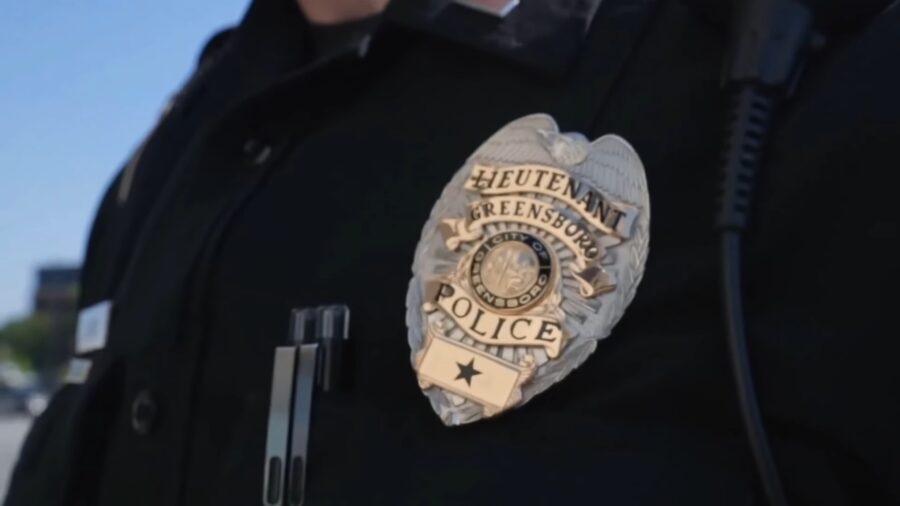
A police state is a political system in which the government exercises rigid and repressive controls over the social, economic, and political life of the population.
This control is achieved through the pervasive use of police power and includes narrowing civil liberties, restricting the availability of firearms to citizens, restriction of non-sanctioned political activity, regulating or prohibition of criticism or protests against government policies or officials, controlling public education or other forms of indoctrination in government policies, and surveillance tactics such as undercover officers or video monitoring. In a police state, individuals may become subject to prolonged undisclosed punishments under broad laws or extrajudicial punishments without due process.
History of Police States
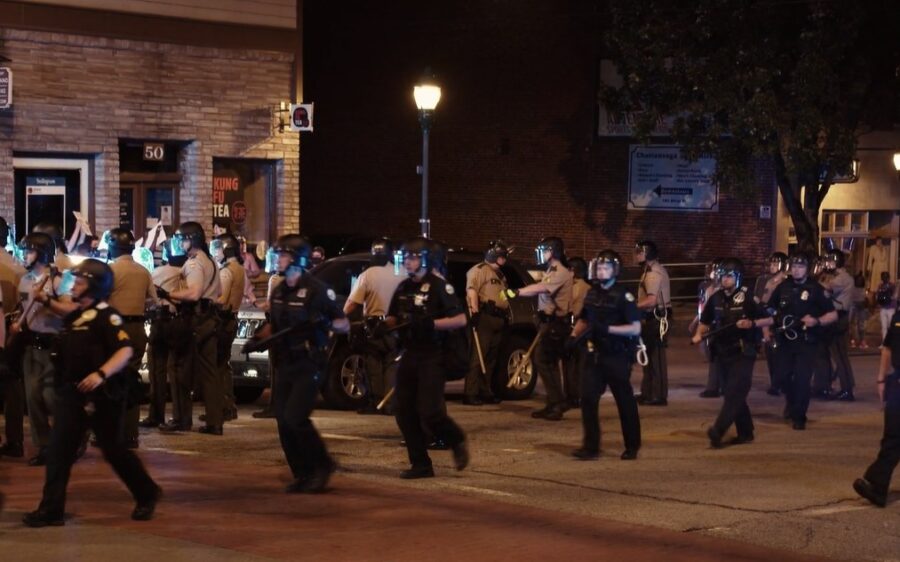
A police state is characterized by the presence of an abnormally large police force or oppressive laws and policies, which allow the government to exercise arbitrary powers over citizens. Police states are usually autocratic regimes where police officers practice an excessive amount of control and surveillance over citizens. It also can refer to governments that are overly restrictive in their attempts to control dissent or perceived threats against their rule.
The concept of the police state has been around for centuries, stretching back to ancient Greece and Rome where rulers presided over public morality with extreme laws that were enforced rigorously by specialized governmental forces.
In more modern times, some of the most totalitarian regimes found in history have been considered “police states” due to their methods of repressing individual freedoms while ensuring a stable political order.
More recently there have been examples of countries attempting to become police states through authoritarian measures meant to suppress particular groups or keep certain ideas from gaining momentum.
In today’s world, it has become increasingly difficult for any nation-state to completely eliminate civil liberties and stamp out all resistance; in part due to advances in communication technology making it easier for people within a state’s borders and overseas activists alike to organize against oppressive policies. Nevertheless, there are still many examples around the world of rulers setting up systems that closely resemble a police state.
Characteristics
A police state is a totalitarian type of government regime in which political power is monopolized by the state. The nation’s police force typically exercises a high degree of control over everyday life and monitors both criminal activity and non-threatening behaviors. This type of government typically seeks to control population movements, information, and opinions without due process or any form of a judicial proceeding.
Characteristics of a police state can include:
- Restriction of movements within the country – Citizens’ activities are monitored, travel documents must be approved, media censorship is enforced and communication between citizens is controlled or limited.
- Intrusive surveillance – Authorities monitor calls and internet browsing activities, keep people under surveillance with cameras placed everywhere, or follow people around to monitor their activity.
- Suspension of civil liberties – Citizens’ rights are disregarded by the government such as by preventing press freedoms, curtailing religious practices or limiting access to education.
- Suppression of dissent – Dissenters are silenced through threats and intimidation tactics such as detention without trial or physical abuse. Information that opposes the regime’s agenda may be withheld from citizens through censorship methods or media suppression methods used to discredit voices in opposition to the government’s policies.
- Extrajudicial punishment – People may face torture for suspected involvement in activities against the state, with little or no evidence beyond unproven accusations; many innocent civilians fall victim to these atrocities due to lack of evidence or fair trial proceedings. Additionally, there may be arbitrary arrests undertaken at suspicious gatherings where protesters peacefully express their grievances.
Political Repression
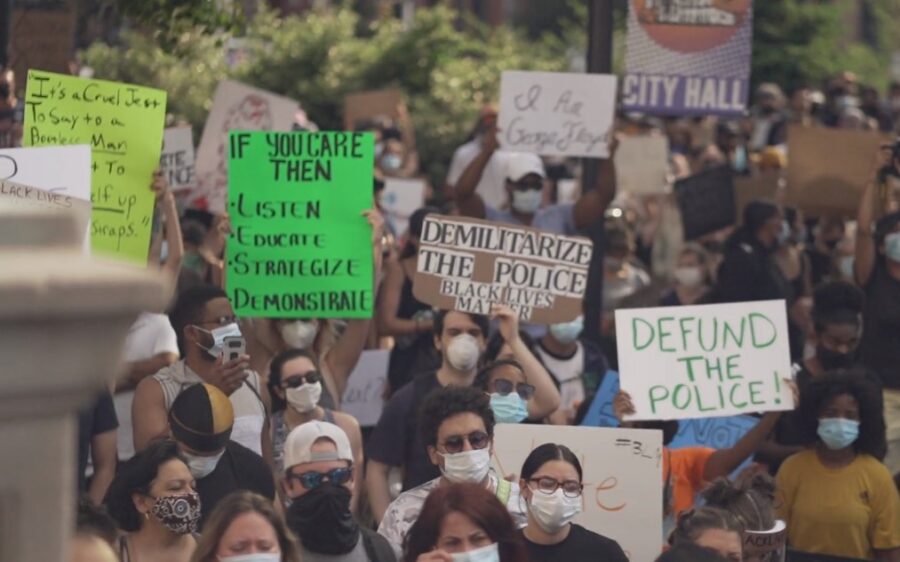
Police states are characterized by militarized, authoritarian governments that have total control over all aspects of society. Political repression and disappearances are not uncommon in these countries as the government seeks to maintain its power.
These oppressive regimes normally censor political opposition, monitor citizens’ activities, restrict freedom of speech and the press, prevent freedom of assembly, limit labor rights, and weaken other civil liberties.
In a police state, arbitrary arrests and detention are commonplace as the government engages in a widespread campaign of terror designed to discourage dissent. Furthermore, police states often employ secret police forces whose role is to quash any challenge to the government’s authority and ensure that its orders are obeyed without question or opposition.
Suppression of Free Speech
One of the most common forms of censorship in it is the restriction of access to information. Governments may use their power to control media outlets and limit the types of news that are reported. They may also control internet access and block websites that they deem to be harmful or subversive.
Surveillance is another key tool used by them to suppress free speech. Governments may use advanced technologies, such as facial recognition software and biometric data collection, to monitor their citizens’ activities and track their movements. This allows them to identify and target individuals who are perceived as threats to the government’s authority.
Finally, they may resort to harassment and intimidation to silence dissenting voices. This can take many forms, such as arrests, detentions, and physical violence against those who express views that are critical of the government. In some cases, police states may even use extrajudicial measures, such as secret detentions and torture, to silence political opponents.
Surveillance
In a police state, surveillance is commonplace. Surveillance techniques can range from physical patrols and searches to more technologically advanced methods, such as cameras, scanners, and tracking devices. Depending on the level of surveillance employed, it can monitor individual activities or larger systems in place throughout society.
Generally, these practices are conducted without the knowledge of the individuals within the system. This allows those in control to gain information without alerting subjects to their own detection. In a police state such activities usually serve to control populations and limit dissent against the state’s authority figures.
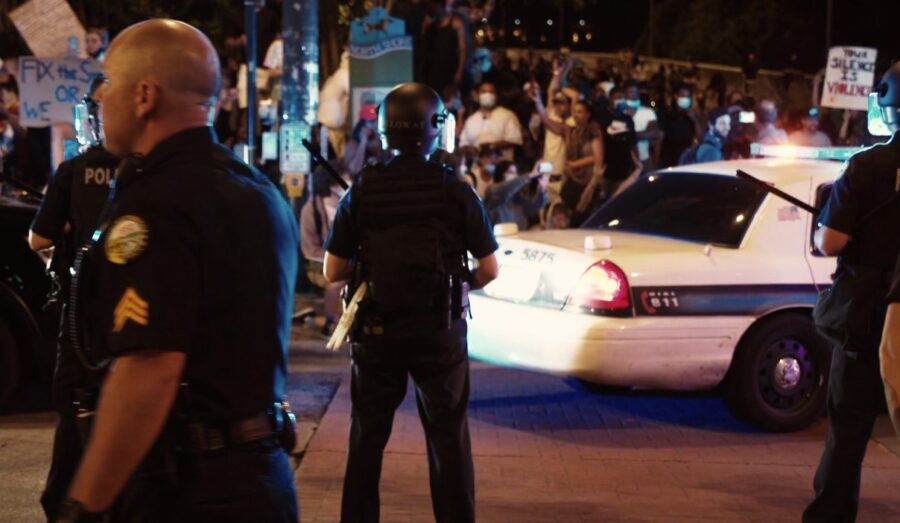
Propaganda
Propaganda is used to influence public opinion and shape the values of a population. In a police state, propaganda is used to demonize certain groups and rally people behind the ruling government by fueling fear and paranoia.
Propaganda may come in the form of mass media such as print, radio, television, or film; educational programs in schools; or posters, pamphlets, and flyers distributed throughout the community.
Propaganda is often highly propagated by messaging which contains false claims or exaggerations. Its goal is to present a single version of reality that reinforces support for government rule and suppresses dissent.
After familiarizing yourself with the top characteristics of a police state, delve deeper into the nuances of law enforcement by exploring the distinctions between state and local agencies, further enhancing your understanding of the modern legal landscape.
FAQs
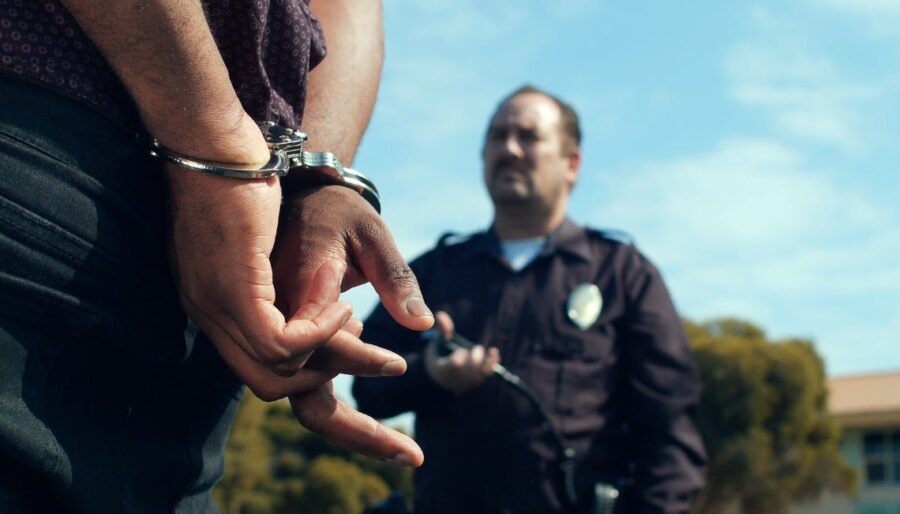
1. What is the difference between a democracy and a police state?
A democracy is a political system where the people have the power to elect their representatives and participate in the decision-making process. In a police state, the government controls the activities of citizens, and there is limited or no freedom.
2. How can citizens protect themselves in a police state?
Citizens can protect themselves in it by staying informed about their rights, organizing and advocating for change, and avoiding activities that may put them at risk of arrest or detention.
3. What is the role of the military in a police state?
The military may be used by the government to enforce its policies and control the population in it. This can lead to increased militarization of society and a decrease in individual freedoms.
4. What is the relationship between police brutality and a police state?
Police brutality can be a symptom of it, where the police are given unchecked power to use force against citizens. This can lead to an atmosphere of fear and intimidation.
5. How does technology impact the development of a police state?
Technology can be used by them to monitor and control citizens, through the use of surveillance cameras, social media monitoring, and facial recognition technology.
6. What are the long-term effects of living in a police state?
Living in this type of country can have a profound impact on an individual’s psychological well-being, as well as their ability to participate in civic life and exercise their rights.
7. How does a police state impact the economy?
It can have negative impacts on the economy, as citizens may become less willing to invest or start businesses due to the risk of government interference or arrest.
8. Can a police state exist in a democratic society?
Yes, it can exist in a democratic society if the government uses its power to restrict the activities and freedoms of citizens.
9. What is the role of international organizations in combating police states?
International organizations such as the United Nations can play a role in identifying and exposing them and advocating for human rights and democratic governance.
10. How can citizens resist a police state?
Citizens can resist it by organizing and advocating for change, speaking out against abuses of power, and refusing to comply with unjust laws or orders.
11. How can people support democracy and prevent a police state?
People can support democracy by voting, participating in civic organizations, and holding elected officials accountable for their actions. They can also educate themselves about the dangers of authoritarianism and work to promote democratic values in their communities.
Conclusion
In conclusion, a police state is defined as a country in which the established law-enforcing apparatus has been given free rein to exercise extraordinary levels of control over the population, often at the expense of basic human rights.
Police states are typically characterized by a vast network of propaganda and stringent regulations that limit individual expression and dissent. Citizens of police states may be subject to surveillance and detention even for relatively minor offenses, making any potential push-back to authoritarianism difficult without fear of retaliation from authorities.
In order to prevent such forms of government from coming into power or becoming entrenched, citizens must remain vigilant and actively participate in democratic processes.

